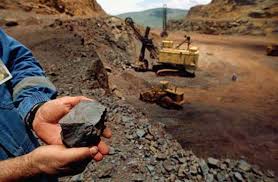 Ferrobamba has signed a cooperation agreement with Tenova to develop its iron ore mine in the Aymaraes region of Peru. The company has chosen Tenova HYL Micro Module technology in order to oversee the technological design and provide the equipment to develop and build a 500,000 t/y pelletization plant and a 250,000 t/y DRI high carbon DRI plant.
Ferrobamba has signed a cooperation agreement with Tenova to develop its iron ore mine in the Aymaraes region of Peru. The company has chosen Tenova HYL Micro Module technology in order to oversee the technological design and provide the equipment to develop and build a 500,000 t/y pelletization plant and a 250,000 t/y DRI high carbon DRI plant.
‘‘The Tenova HYL Micro Module will allow our company to add significant value to our iron ore deposit in Aymaraes, producing high carbon DRI with the proven ZR (zero reformer) technology used since 2010 in the Emirate steel. The Micro Module uses the same ZR technology applied in Nucor’s Louisiana plant, but is one 10th of the size and allows junior mining companies like ours to enter the DRI production market with a limited capital investment” stated Alfonso Navarro, CEO of Ferrobamba. “Our company will be in a position to produce a premium quality DRI that is not currently available in the region”. In fact, Ferrobamba’s Aymares Project is potentially one of the highest quality, lowest cost iron ore projects in the Americas with a significant resource upside potential of 3’400 Mt of iron ore.
Iron ores will be first crushed and pelletized and then processed to direct reduction (DR) grade pellets. These pellets are fed into a Tenova HYL ZR Micro Module DRI plant where they are reduced to metallic iron. The DRI produced is the highest quality available with high carbon content (around 4%) and can easily substitute pig iron or high quality scrap for use in the electric steel making operation, to produce high grade steel.
“The Micro Module DR Plant is a proven technology that allow for High Carbon DRI production with a simple and compact design providing several benefits, such as low maintenance costs, minimum manpower requirements, more affordable CAPEX, and low OPEX. Moreover, the Micro Module, as any other ENERGIRON DR Plant, complies with the strictest environmental regulations. It has been permitted twice already in the U.S.A., as well in other regions of the World” confirmed Angelo Manenti, VP of North America Business development for Tenova.



